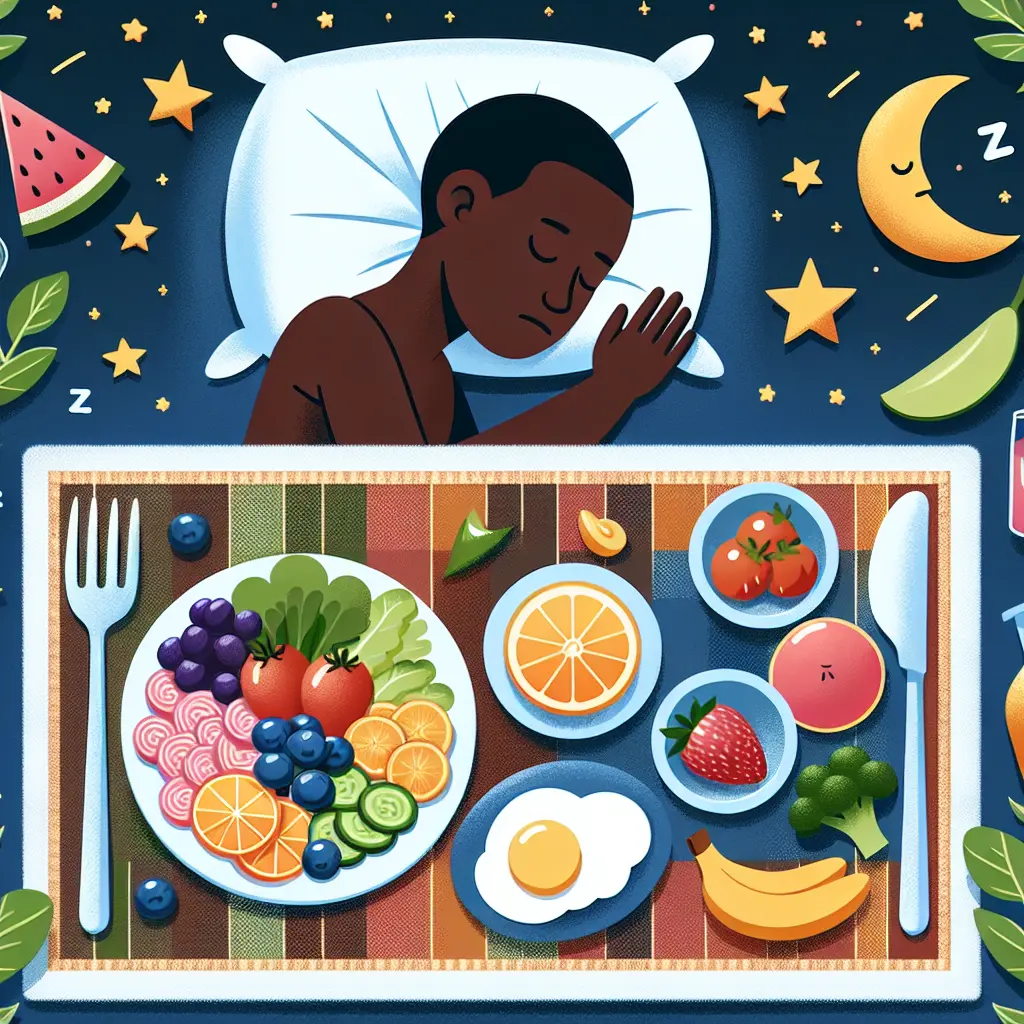In our quest for a good night's sleep, we often overlook the significant role of diet in sleep hygiene. The connection between what we eat and how well we sleep is profound, influencing not just the duration but also the quality of our rest. Understanding the impact of diet on sleep can be a game-changer for those struggling with insomnia or erratic sleep patterns.
Recent studies highlight the intricate relationship between what we consume and how we sleep. Sleep is not just about quantity; the quality of sleep is equally significant. According to a study published in the journal Nutrients, consuming foods rich in tryptophan, magnesium, and melatonin can enhance sleep quality by promoting the production of sleep-inducing hormones like serotonin and melatonin.
Foods for better sleep include those rich in magnesium, such as almonds and spinach, which support muscle relaxation and nerve function, facilitating deeper sleep. Additionally, complex carbohydrates found in whole grains can help increase the availability of tryptophan in the bloodstream, further aiding sleep onset.
In recent news, innovative solutions like ergonomic sleep products are gaining popularity for their ability to enhance sleep quality through supportive materials. While these products play a role in physical comfort, they remind us of the importance of holistic approaches that include diet for optimal sleep hygiene.
Moreover, discussions around "sleep banking" — the idea of saving up sleep for later — have been debunked. Consistent sleep patterns supported by a balanced diet are crucial for maintaining cognitive and physical health.
Foods That Affect Sleep: What to Avoid
While incorporating sleep-friendly foods into your diet is beneficial, it's equally important to recognize foods that can disrupt sleep. Caffeine and alcohol are well-known culprits that can interfere with sleep cycles. Caffeine can stay in the system for hours, delaying melatonin release and hindering sleep onset. Similarly, while alcohol might induce drowsiness initially, it disrupts REM sleep, leading to poorer overall sleep quality.
Experts suggest a balanced diet for better sleep involves regular consumption of fruits, vegetables, lean proteins, and whole grains. These foods not only support general health but also enhance sleep quality by stabilizing blood sugar levels and reducing nighttime awakenings.
The relationship between diet and insomnia is particularly noteworthy. Studies have shown that dietary interventions can alleviate insomnia symptoms by enhancing nutrient intake that supports neurotransmitter function.
Women often experience poorer sleep quality due to hormonal fluctuations. Tailoring dietary choices to include phytoestrogen-rich foods like soy products can mitigate some of these effects by balancing hormone levels.
Practical Strategies for Implementing Sleep-Friendly Diets
Implementing dietary changes requires mindful planning and consistency. Here are some practical strategies:
Consider the case of Sarah, a 45-year-old woman who struggled with insomnia due to work-related stress and erratic eating patterns. By consulting with a nutritionist, she incorporated more whole foods into her diet, reduced caffeine intake, and established a regular meal schedule. Over several months, Sarah reported significant improvements in her sleep quality, experiencing fewer nighttime awakenings and more restorative rest.
As we delve deeper into how dietary choices shape our sleep, emerging research continues to shed light on this dynamic relationship. For example, weight-loss drugs that may protect against dementia underscore the connection between metabolism and brain health. This highlights the broader implications of diet not just for sleep but overall cognitive well-being.
In today's fast-paced world, achieving restful and restorative sleep is crucial for overall well-being. The intricate connection between diet and sleep hygiene offers valuable insights for enhancing sleep quality through nutrition. Here's a recap of the key points discussed:
We invite you to reflect on how your current dietary habits influence your sleep quality. Have you experienced positive changes by adjusting your nutrition? Share your experiences or insights in the comments below. Together, we can explore and support each other in our journeys toward improved sleep hygiene.
Sleep Foundation and Healthline.Wishing you nights of restful slumber and rejuvenating dreams,









Leave a Comment